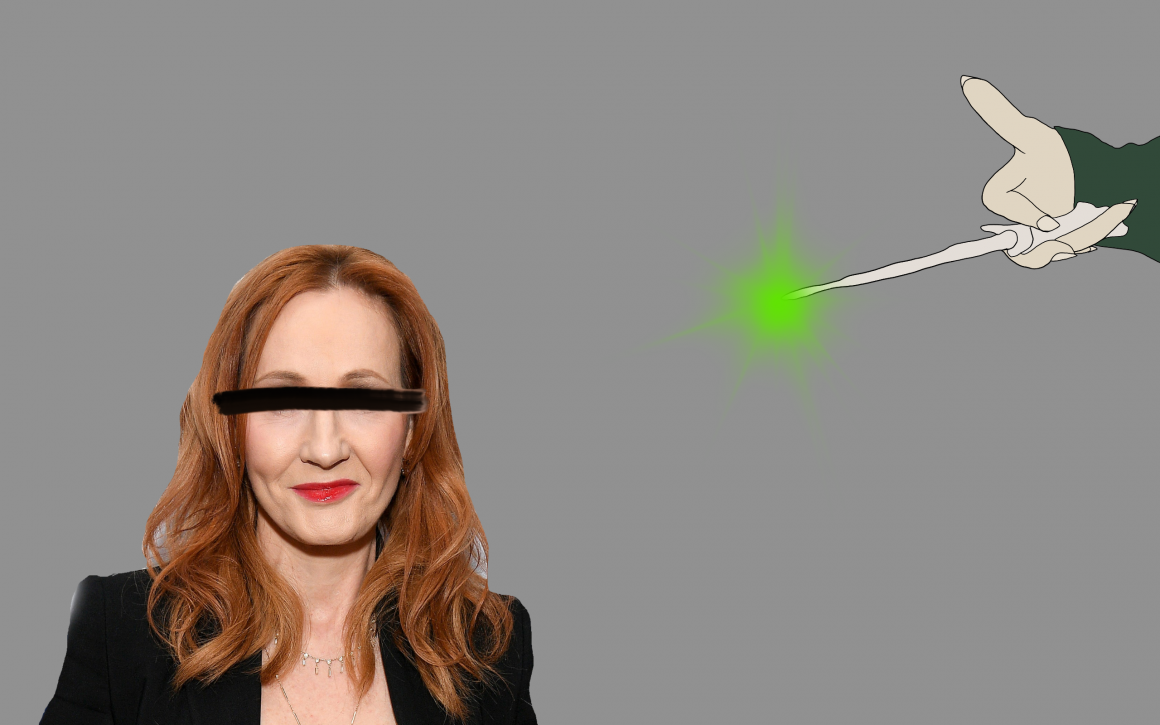
A completely faithful adaptation of the Harry Potter books is not the best idea
By Valery Perez, April 28 2023—
A new Harry Potter series has been confirmed. The streaming service HBO Max announced the new adaptation during their Warner Bros. Discovery’s presentation on April 12. The series is to be released over a decade with an entirely new cast and each book is covered over the span of a season. Part of the selling pitch for this new series is the promise of a faithful adaptation and a more in-depth dive into the stories from the books. J.K. Rowling is set to take the role of executive producer, guaranteeing that this new adaptation “will allow for a degree of depth and detail only afforded by a long form television series” and will “preserve the integrity of [the] books.”
For many series that would be cause for excitement, but a faithful adaptation of this series gives rise to many issues regarding the discrimination of minorities. You don’t have to look far to find issues of tokenism, harmful stereotyping, colourism and tone-deaf takes within the pages of the original series.
Tokenism, the practice of making only a passing effort in recruiting a handful of people from minority groups to give an appearance of equality, is extremely prevalent in the books. Characters of colour are scarce and unimportant, usually characterized by stereotypes, and often not relevant enough to be given any depth or meaningful plot lines. Cho Chang, one of the only Asian characters, is one of many examples. Her only purpose in the books is to be a placeholder until Ginny Weasley, a white woman of strong and independent character, becomes the main target for Harry’s affection. At which point Cho is forgotten by Harry, and everyone else reading the story. Cho’s characterized as an intelligent, well-mannered and docile girl — stereotypical and harmful characteristics often assigned to Asian women.
Besides seeing no POC protagonists, where we really get a sense of how little they matter is in their names. Etymologies for most white characters in the series can be found on the Wizarding World website, while characters of colour are ignored. Characters like Draco Malfoy, one of the main antagonists and pure blood enthusiasts, has an etymology to his name that gives the reader a clue as to who he is. Draco stands for “Dragon” and Malfoy is old French for “evil faith/trust,” telling of his witty, cunning, untrustworthy character and association with the villains. Cho Chang is just two common Korean surnames thrown together. Another example is the only Black character in a position of power being named “Shacklebolt,” a tone-deaf nod to slavery.
The association of Western beauty standards with goodness plays an integral role in communicating to readers who the villains and background characters in the story are. While not all good-looking characters are good, all evil characters are surely not good-looking. One instance is seen in Uncle Vernon and Dudley, two of Harry’s main tormentors, who are described as “a big, beefy man” and “extremely fat,” respectively.
Another common physical descriptor for many characters declared good-looking is their “light complexion.” Hermione Granger, Ginny Weasley, Draco and Narcissa Malfoy are some of those whose lightness of skin is emphasized along with their beauty. In contrast, Dean Thomas is described as having “dark hair and dark skin,” appearing to be of “African descent.” No mention of his, or any other characters of colour’s good looks, is explicitly made.
While the original books cannot be rewritten, the story can be built upon in this new adaptation. A good starting point for solving some of the issues could be a different exploration of the characters. Distancing characters of certain racial backgrounds from characteristics often assigned to that race would reduce the harmful representation seen throughout the books. Another step could be the expansion of POC characters by allotting them more time and thought. This could be done by giving POC names the same whimsical and thoughtful treatment as the other characters in the series and taking the time to assign them etymologies. A more impactful step would be allotting POCs more central roles within the series, allowing for more diverse and meaningful representation.
While I’ve attempted to address a few issues, many more can be found within the pages of the original series. Issues of classism, slavery, sexism and queer identities are amongst the many others that Rowling fails to discuss in a responsible manner. For many fans, the series is synonymous with hate and intolerance, and nostalgia is not a strong enough tool to overshadow that legacy. Adapting the original series faithfully is choosing to stand by the tokenism, harmful stereotyping and a plethora of tone-deaf takes. This makes it difficult for fans of the Wizarding World to enjoy its expansions, as it calls into question their morals instead of enjoying the whimsy and wonder they crave.
The books are definitely a product of their time. As a cis white woman living through the latter half of the 20th century, Rowling may not have had the exposure, tools or social awareness for the nuance required to understand the issues she attempts to address in the books. While this can serve as an explanation, it is not an excuse. Yet there is still a chance for improvement. This series is the perfect opportunity to expand on the world and add much-needed depth and nuance to the surface-level understanding of complex issues she showcased in the initial books.
The series’ legacy may yet be saved.
This article is a part of our Opinions section and does not necessarily reflect the views of the Gauntlet editorial board.
